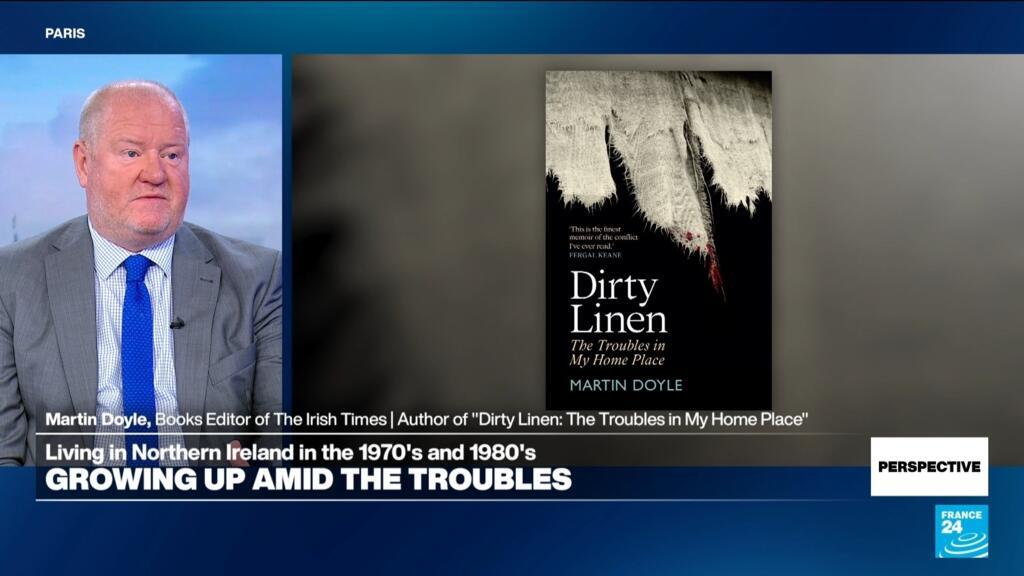The author Martin Doyle has recently released a compelling new book titled "Dirty Linen: The Troubles in My Home Place," which delves into the tumultuous period known as The Troubles in Northern Ireland, lasting approximately three decades. In an interview with FRANCE 24, Doyle explained that his objective was to create a microhistory of this challenging era by zeroing in on his own local community, or parish. This unique approach provides an intimate and detailed perspective on the events that unfolded during this turbulent time.
During The Troubles, a conflict primarily rooted in the division between the Catholic nationalist community and the Protestant unionist community, more than 20 individuals lost their lives in the few square kilometers surrounding Doyle's childhood home. This local lens not only underscores the personal impact of the conflict but also highlights the broader societal implications that resonated throughout Northern Ireland.
Doyle's research involved engaging with individuals from both sides of the divide, capturing their experiences and memories. By documenting these personal stories, he aims to offer a nuanced understanding of the conflict's ramifications on ordinary lives. "Dirty Linen" serves as a testament to those who lived through the violence and chaos, illustrating how daily life was irrevocably altered by the persistent threat of violence and the societal fractures that The Troubles created.
In addition to his writing, Martin Doyle is currently serving as the artist in residence at the Irish Cultural Centre in Paris. This position allows him to further explore the themes of his work while engaging with a diverse audience in a different cultural context. The role not only emphasizes the significance of artistic expression in processing historical trauma but also highlights the importance of sharing these narratives beyond the borders of Northern Ireland.
The title "Dirty Linen" itself evokes the idea of airing out the often-unpleasant truths of the past while drawing attention to the complexities involved in the remembrance and reconciliation processes. Doyle’s approach serves as an essential reminder of the power of personal storytelling in understanding collective trauma and promoting healing in communities affected by conflict.
Through interviews and personal reflections, Doyle reveals that history is not just a series of dates and events but a tapestry woven from the lives of real people. This microhistorical method invites readers to consider the human cost of political and sectarian strife while encouraging empathy and understanding among disparate groups that once found themselves at odds.
Overall, "Dirty Linen: The Troubles in My Home Place" stands as a significant contribution to the literature on Northern Ireland, providing a personal, grounded perspective on a complex and often painful chapter in history. Doyle's work fosters an important dialogue about memory, identity, and the ongoing quest for reconciliation in a society still grappling with the legacy of its past.












